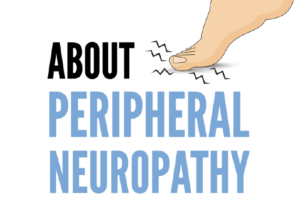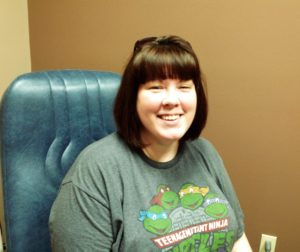


Dr. Kevin Powers is a Fellow of the Association of Extremity Nerve Surgeons and has vast expertise in the field of physical neuropathy. Dr. Powers has received special training so he can improve the painful symptoms of nerve damage for his patients. If you have been diagnosed with neuropathy and were told that “nothing can be done,” then you need to schedule an appointment with our office right away!
 From a medical perspective, there are several different systems important for the human body to function, including the nervous system which processes physical stimulations and dictates appropriate responses. In order for this all to work, we rely upon our senses to report how things appear and feel. When we are unable to trust our senses, like when nerves are damaged, it can potentially lead to dangerous situations.
From a medical perspective, there are several different systems important for the human body to function, including the nervous system which processes physical stimulations and dictates appropriate responses. In order for this all to work, we rely upon our senses to report how things appear and feel. When we are unable to trust our senses, like when nerves are damaged, it can potentially lead to dangerous situations.
When everything is running smoothly and as intended, you won’t likely give much thought to your peripheral nerves. Conversely, if they are damaged (neuropathy), it can result in several issues. Damaged nerves can relay faulty messages to the brain, including sensations of burning, tingling, and pain when none should actually exist. The pain can be particularly frustrating at night, impairing your ability to get a good night’s sleep. Even more concerning, though, nerve damage can also leave the peripheral nerves unable to convey any signals to the brain, including when physical damage has been sustained to a body part. This opens the door for dangerous infections.
When discussing neuropathy, the focus mainly falls upon the peripheral nerves. It is important, though, to understand the respective components of the nervous system as a whole. This can help with allowing us to see how the various parts play essential roles in providing the ability to experience and process physical sensations.
The body’s nervous system is formed by two subsystems – the central nervous system and the peripheral nervous system. The central nervous system is comprised of the brain and spinal column and is responsible for processing information and prompting appropriate responses and actions. The peripheral nervous system is how the body collects the data to be processed.
Peripheral nerves run in an intricate network throughout the entire body. One of the main duties the nerves have is to relay signals of pain when an injury has been sustained. This enables the brain to then orchestrate an appropriate response and everything necessary for healing processes.
Commonly associated with diabetes, there are several potential causes of nerve damage. Tumors, certain medications, infections, physical trauma, autoimmune disorders, vitamin deficiencies, and various other diseases can all lead to the development of this condition.
The two main objectives of treatment for a neuropathic condition are managing the root cause of the neuropathy and relieving present symptoms. These can be achieved through the use of medication, physical therapy, intravenous immune globulin, electrical stimulation, and surgical procedures.
Preventing the condition from arising in the first place is always preferable to having to treat it. There are a handful of ways to do this, including managing medical conditions that heighten the risk of nerve issues. Diabetes, rheumatoid arthritis, and alcoholism are all medical issues that should be carefully managed. Making healthy lifestyle choices also helps. Including proteins high in saturated fat into your diet is beneficial, as is including healthy fats. Foods that are particularly helpful include olives, avocados, butter (from grass-fed cows), and olive and coconut oils. These foods do not raise blood sugar or insulin levels, which contributes to nerve damage.
Many times, Dr. Powers has helped to stop pain and get patients off their nerve pain pills. These nerve pills can have serious side effects, which affect the ability of a person to think clearly. If you are taking nerve pain pills, it is in your best interest to find a solution to stop the pain and get off of these medications.
 Neuropathy Patient Testimonials
Neuropathy Patient Testimonials“I am so pleased with my surgery results. After years of neuropathy pain in my feet I now see a light at the end of the tunnel. I am now pain free and not miserable all the time. I can enjoy my children and family time now. The staff is so polite and thoughtful. Dr. Powers is great, he listens to your concerns and has your best interest at heart.”– Heidi R.